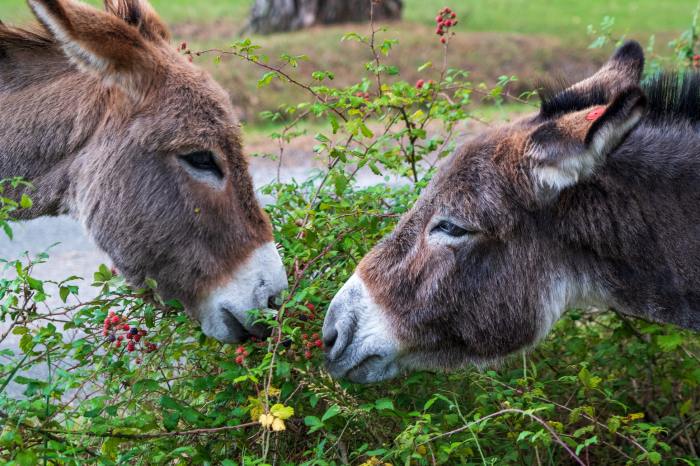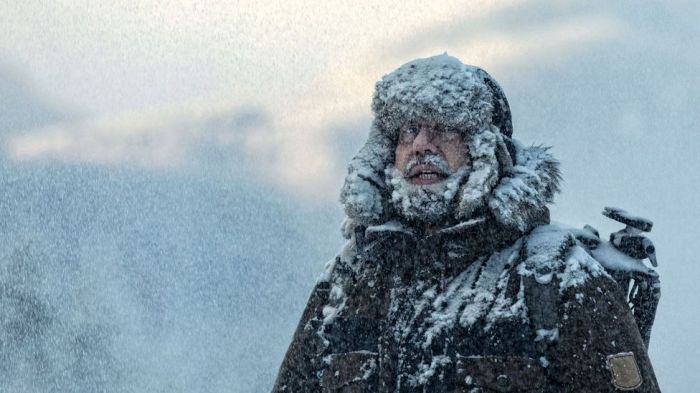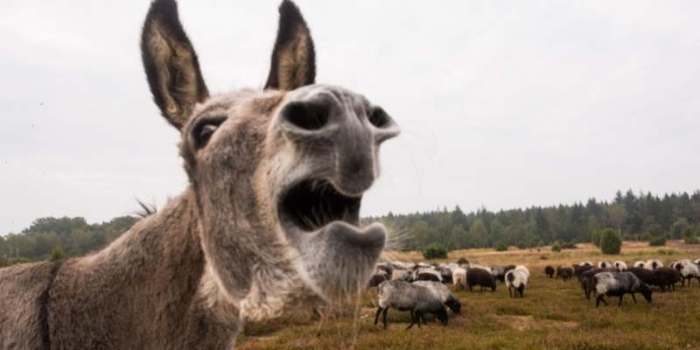Can donkeys freeze to death in the winter – Delving into the realm of animal resilience, this exploration delves into the question of whether donkeys can succumb to the frigid embrace of winter. As we embark on this journey, we will uncover the physiological and environmental factors that influence their vulnerability to cold temperatures, shedding light on the intricate interplay between nature and survival.
Donkeys, with their unique physiological adaptations, face distinct challenges in enduring winter’s harsh conditions. Their body size, insulation, and metabolic rate all play crucial roles in their ability to withstand the cold. Understanding these factors provides a foundation for comprehending their susceptibility to hypothermia.
1. Physiological Factors Contributing to Vulnerability to Cold

Donkeys possess unique physiological adaptations that make them susceptible to cold temperatures. Their large body size results in a greater surface area for heat loss. Their relatively thin coat provides less insulation compared to other equines, reducing their ability to retain body heat.
Additionally, their lower metabolic rate limits their capacity to generate heat internally.
Impact on Survival
- Large body size increases heat loss, making them more vulnerable to hypothermia.
- Thin coat provides inadequate insulation, leading to rapid heat loss in cold conditions.
- Low metabolic rate hinders heat production, making it difficult to maintain body temperature.
2. Environmental Factors Influencing Cold Tolerance

Specific environmental conditions can exacerbate the cold vulnerability of donkeys. Wind chill, a factor that combines wind speed and temperature, significantly increases heat loss. High humidity traps moisture in the coat, further reducing its insulating properties. Precipitation, such as rain or snow, can penetrate the coat and cause hypothermia.
Real-World Examples
- In 2015, a severe blizzard in the United States resulted in the deaths of numerous donkeys due to wind chill and hypothermia.
- During a rainy winter in the United Kingdom, several donkeys were found suffering from hypothermia after their coats became saturated.
3. Risk Assessment and Preventive Measures: Can Donkeys Freeze To Death In The Winter

Identifying risk factors can help assess the vulnerability of donkeys to cold-related injuries. Age, health, and environmental conditions all play a role. Young, old, or ill donkeys are more susceptible. Providing adequate shelter, insulation, and nutrition can significantly improve their chances of survival.
Practical Recommendations, Can donkeys freeze to death in the winter
- Provide windbreaks and insulated shelters to protect donkeys from cold winds.
- Ensure access to dry bedding and blankets to enhance insulation.
- Increase feed intake to support increased metabolic rate and heat production.
4. Case Studies and Historical Examples
Case studies and historical examples provide valuable insights into the impact of cold exposure on donkeys. The survival of a donkey during a harsh winter in Canada demonstrates the effectiveness of proper shelter and nutrition. Conversely, the fatalities of donkeys in a blizzard highlight the devastating consequences of inadequate protection.
Lessons Learned
- Adequate shelter and nutrition can significantly increase survival rates in cold conditions.
- Neglecting the needs of donkeys during winter can lead to severe injuries or death.
Common Queries
Can donkeys tolerate cold weather?
Donkeys possess a moderate tolerance to cold weather due to their thick coats and ability to conserve body heat. However, prolonged exposure to extreme cold can lead to hypothermia.
What are the signs of hypothermia in donkeys?
Signs of hypothermia include shivering, lethargy, weakness, and a drop in body temperature. If left untreated, hypothermia can be fatal.
How can I prevent my donkey from freezing to death?
Provide adequate shelter, ensure proper nutrition, monitor their health, and consider using blankets or heated water buckets during extreme cold.